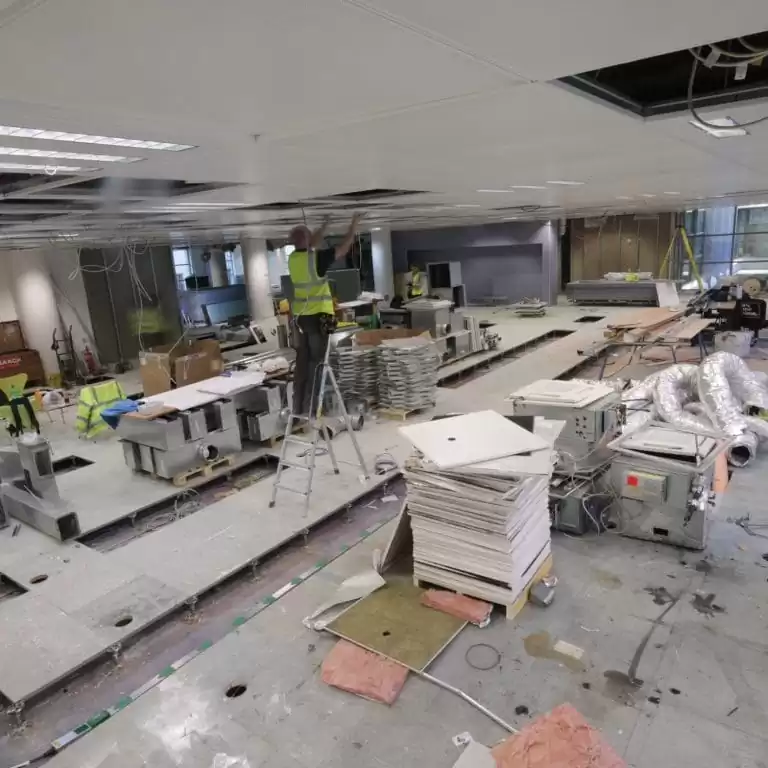
News Capturing internal fit-out works
From new school builds to huge residential skyscrapers, capturing a time-lapse video has many, many uses.
Ground works to steel being erected, through to brickwork going up and the final touches of paint, this form of photography perfectly captures a previously derelict or unused site being transformed into a significant architectural or engineering feat.
Now utilised by the vast majority of the UK’s contractors – both big and small – a long-term time-lapse camera system is a vital cog in the country’s engineering supply chain. With remote site monitoring viewers keeping every stakeholder up-to-date from anywhere in the world and the finished, fully post-produced time-lapse video the perfect marketing tool to sell real estate or effectively target the required audience, it is an industry standard.
Certain companies choose to just concentrate on these long-term, outdoor projects. This ignores the applications of time-lapse that go beyond just concrete posts and steel beams. At Time-Lapse Systems we can also install bespoke, remotely monitored camera systems for internal projects.
Internal shots are most effective when capturing in a large space – such as a warehouse or large office floor, but can also be used for shop fit-outs and huge events.
Much like external works, the remote ‘site’ monitoring element can be incredibly useful. Having eyes on the whole project from a distance affords the opportunity to react and make changes to plans and works in real time.
But for the majority of these sorts of works, the finished time-lapse edit is the most important use.
This short time-lapse video was completed for mobile business Three, sharing the internal changes that occurred when their Middlesbrough store underwent a major refurbishment a few years ago.
Capturing the refit required careful management, with rapid capture needed to ensure the complete refit was documented in the best possible way:
Another short edit is this temporary display erected at the Legoland Discovery Centre in the Trafford Centre, Manchester. 2,000 man-hours were needed to put together the Star Wars Miniland, which remained in situ for just a few months before being dismantled. Yet another historic event immortalised thanks to time-lapse:
The previous two examples are very effective in highlighting how well time-lapse can be used in a small enclosed space. But sometimes this is not sufficient, much like this following video for Vision Express, who wanted their Oxford Street, London, flagship stop fit-out captured for promotional purposes.
Several time-lapse cameras were managed in situ – rather than remotely operated – and could be moved and positioned as needed to capture in detail the intense work that went into creating the brand new store:
Finally, there are other occasions where internal time-lapse can be combined with video and short-term rapid interval capture to create a full narrative.
Southampton Freight Services wanted to capture their own headquarter refit, but with just two months from start to completion long-term time-lapse alone would not suffice. Adding in situ time-lapse and video to it created the perfect finished edit, however: